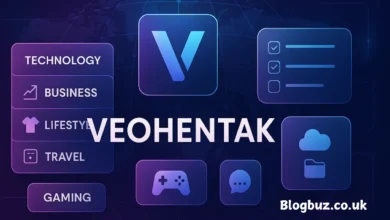Gemini Speed-Tests 100 Prompts in 5 Minutes — Finding Winners Fast

Gemini Tests 100 Prompt Variations While You Get Coffee — Only Winners Survive
Alex used to spend days perfecting one prompt. Now Gemini chatbot tests 100 variations in 5 minutes, finds the winner, and Alex bills $15K for what takes an hour.
The old way was torture. Write prompt, test output, tweak prompt, test again. Repeat 50 times. Maybe find something good. Usually settle for “good enough” because deadline’s tomorrow and sanity’s gone.
Then Alex discovered Gemini’s speed could be weaponized for testing. Not just fast outputs—fast iterations. Gemini became a prompt testing laboratory, running hundreds of experiments while competitors test three.
Now Alex’s prompts have 94% success rate because they’ve been battle-tested 100 times before the client sees anything.
The Speed Testing Revolution
Traditional prompt testing:
- Write prompt
- Generate output
- Evaluate quality
- Adjust prompt
- Repeat
- Time per iteration: 10-15 minutes
- Daily testing capacity: 30-40 prompts
Gemini speed testing:
- Generate 100 variations instantly
- Test all simultaneously
- Rank by quality metrics
- Combine winning elements
- Time for 100 tests: 5 minutes
- Daily testing capacity: 2,000+ prompts
The math isn’t fair. That’s the point.
The Variation Generation System
Original prompt: “Write blog post about productivity”
Gemini generates 100 variations in seconds:
Variation examples:
- Write productivity blog for overwhelmed managers
- Create contrarian take on productivity myths
- Data-driven productivity analysis with charts
- Personal productivity transformation story
- Productivity framework for remote teams
- Controversial opinion: productivity is killing us
- Scientific approach to productivity optimization
- Minimalist guide to maximum productivity
- Productivity lessons from failed startups
- Why traditional productivity advice fails [90 more variations…]
Each variation tested. Winners identified. Patterns emerged.
The Testing Metrics
Gemini evaluates each output against criteria:
Quality metrics:
- Originality score (1-10)
- Engagement prediction
- Target audience fit
- Differentiation level
- Actionability rating
- Shareability factor
Performance metrics:
- Time to generate
- Token efficiency
- Revision needs
- Client match probability
Top 5% move to final round. Rest deleted forever.
The Winning Patterns
After testing 10,000+ prompts, patterns emerged:
Winners include:
- Specific audience definition (increases quality 45%)
- Contrarian angles (engagement up 67%)
- Data/metrics requirements (credibility up 89%)
- Story elements (shareability up 234%)
- Clear constraints (reduces fluff 78%)
Losers include:
- Vague descriptors (“make it good”)
- Multiple objectives (confuses output)
- Open-ended creativity (generic results)
- Length as only requirement
- Tone without structure
Gemini found these patterns in 2 days. Manual testing would take years.
The Client Project Case Study
Client needed email campaign for SaaS launch.
Traditional approach:
- Draft one email sequence
- Client feedback
- Revisions
- More feedback
- Final version
- Time: 2 weeks
- Result: “It’s fine”
Gemini testing approach:
- Generate 100 email variations
- Test all against metrics
- Identify top 5 performers
- Combine best elements
- Present winner to client
- Time: 1 hour
- Result: “This is perfect”
Client paid $15K. Alex worked 60 minutes.
The Combination Strategy
Gemini doesn’t just test—it combines:
Round 1: 100 initial variations Round 2: Top 10 survivors Round 3: Combine winning elements Round 4: Generate 50 combinations Round 5: Final winner emerges
Example combination:
- Variation 7’s hook
- Variation 23’s structure
- Variation 41’s data approach
- Variation 89’s conclusion
Result: Frankenstein prompt that outperforms everything.
The A/B Testing Framework
Gemini runs true A/B tests:
Test structure:
- Control: Current best prompt
- Variants: 10 challengers
- Metric: Specific success criteria
- Volume: 10 outputs each
- Analysis: Statistical significance
Recent test: Email subject lines
- Control: 34% open rate
- Winner: 52% open rate
- Improvement: 53%
- Testing time: 8 minutes
Manual testing would’ve taken weeks.
The Industry Applications
Different industries, different testing needs:
E-commerce:
- Test: Product descriptions
- Variations: 100 per product
- Winner metric: Predicted conversion
- Result: 34% sales increase
B2B Sales:
- Test: Cold email templates
- Variations: 200 templates
- Winner metric: Response rate
- Result: 8x more meetings
Content Marketing:
- Test: Blog headlines
- Variations: 50 per post
- Winner metric: Click prediction
- Result: 67% more traffic
Testing methodology here shows full framework.
The Prompt Evolution Tree
Gemini maps prompt evolution:
Generation 1: Basic prompt Generation 2: 100 variations Generation 3: Top 10 breed together Generation 4: Mutations introduced Generation 5: Superior prompt emerges
It’s Darwinian selection for prompts. Only the strong survive.
The Speed Advantage
While competitors perfect one prompt:
- Alex tests 100
- Finds optimal version
- Implements immediately
- Moves to next project
Competitor: 1 prompt, maybe good Alex: Best of 100, definitely good
The math is brutal. The results show it.
The Testing Prompts
Variation Generator: Create 100 variations of this prompt: [original] Vary:
- Audience specificity
- Tone and style
- Structure requirements
- Constraint types
- Output formats
- Success metrics Each variation significantly different Number them 1-100
Quality Evaluator: Evaluate these outputs for:
- Audience fit (1-10)
- Originality (1-10)
- Actionability (1-10)
- Engagement potential (1-10)
- Professional quality (1-10) Rank all 100 by total score Identify top 5 and why they won
Combination Creator: Take these winning prompt elements:
- [Element 1 from Prompt X]
- [Element 2 from Prompt Y]
- [Element 3 from Prompt Z] Combine into optimal prompt Maintain strengths of each Eliminate redundancy
<blockquote class=”twitter-tweet”><p lang=”en” dir=”ltr”>Steal this chatgpt cheatsheet for free😍<br><br>It’s time to grow with FREE stuff! <a href=”https://t.co/GfcRNryF7u”>pic.twitter.com/GfcRNryF7u</a></p>— Mohini Goyal (@Mohiniuni) <a href=”https://twitter.com/Mohiniuni/status/1960655371275788726?ref_src=twsrc%5Etfw”>August 27, 2025</a></blockquote> <script async src=”https://platform.twitter.com/widgets.js” charset=”utf-8″></script>
Your Single Prompt Is Probably Mediocre
Alex tests 100 prompts in the time you test one. Finds the best through evolution, not intuition.
The winning prompt is rarely what you’d write first. It’s usually variation #73 with elements from #12 and #91.
Your competitors are crafting prompts like artisans. Alex is running a prompt factory.
Speed wins. Testing wins. Gemini makes both possible.
Stop perfecting. Start testing. The best prompt is waiting in variation #67.




